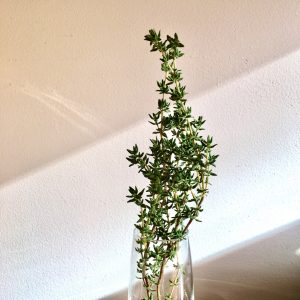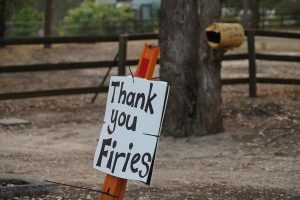Australian bushfire support
Update June 2020: Have you been directly impacted by the bushfires, as a first responder or damage to your home or business? I’m still offering a free naturopathic consultation, any time in 2020. The offer is now extended to health practitioners or small creative businesses that have been impacted, with a free exploratory mentoring session. If you or anyone you know if struggling as a result of this summer’s fires, please get in touch to arrange a free consultation.
Currently most parts of Eastern Australia are indirectly, if not directly, impacted by smoke and trauma. My heart goes out to those in the fire-affected areas. To aid recovery, I’m offering free consultations to people directly impacted.
Are you impacted by bushfires or smoke?
If you’re a first responder or your home has been damaged or lost, and would like some naturopathic assistance, please contact me directly to get a code for a free naturopathic consultation.
I instigated this service after the Black Saturday fires in Victoria and realise when you’re in survival mode, you mightn’t be aware how beneficial this kind of help is. Because of this, the offer for a free consultation is open all year to those directly impacted, regardless of how delayed your reaction may be.
For people indirectly affected by smoke and stress, regardless of whether you’re an existing or new client, you are welcome to book the mini consultation, for a discounted, acute consultation to treat your respiratory symptoms, or frayed nerves. However if smoke irritation is triggering chronic health issues, please select a regular new (or follow up) consult, so we have the time to treat the underlying causes.
Too many words? This post is summed up in a short video on Facebook.
Tips for dealing with smoke pollution
Smoke is impacting people around much of the country and even as far away as New Zealand. Those most vulnerable to smoke pollution include people with chronic respiratory, cardiac and sinus conditions, but on days registering many times greater than ‘hazardous’ pollution levels, we’re all vulnerable.
Here are some tips to help reduce the impact of smoke on your airways and sinuses.
- Keep an eye on the air pollution levels in your area.
- To minimise exposure, stay inside and shut all windows and doors of your home/business once pollution hits “unhealthy” levels. If it the weather is hot, be extra careful to stay hydrated and try these hacks for keeping cool.
- Wear the right kind of mask when outside. Unfortunately, paper or cotton hospital-style masks are useless in protecting your airways from smoke-related pollution. As has been widely publicised, a P2/N95 mask is the minimum required to reduce smoke exposure. However, these are only effective if you can create a decent seal around your face. Facial hair or gaps where the mask loses contact with your skin may also render these masks ineffective. Once you have a decent seal it’s going to make breathing feel a bit uncomfortable, so elderly people, children and pregnant women should reassess their need to go outside. P2 masks are available from most pharmacies and hardware stores in smoke impacted cities. Here’s more information on fitting your mask.
- Sinus congestion: for sneezing, blocked or runny nose try a saline spray. A neti pot or a spray where you can squirt the liquid straight up your nose, can help rinse pollutants from your sinuses. I like the Flo ‘travel’ spray, which is cheap and contains a herb that helps lubricate and protect delicate sinus membranes.
- Headaches: if you have an ache across the front of your head, your sinuses may be congested. Try the sinus spray and an old fashioned steam inhalation.
- Red or irritated eyes. Rinse your eyes. A bottle of saline and an eye bath cost only a couple of dollars. Here’s how to use an eye bath.
- Soothe your eyes: chamomile tea bags make a soothing eye mask. Cover two tea bags with boiling water in a cup using the saucer as a lid, or brew in a teapot. The anti-inflammatory properties in chamomile are transformed by this process of trapping the steam. Allow to fully cool before applying a bag to each eye. Fresh or dried chamomile flowers can be brewed in a pot, then soak cotton wool or make up remover pads in the cooled tea.
- Irritated throat: suck on a teaspoon of thyme or manuka honey as needed. A salt water gargle (1 tsp sea salt in a glass of warm water) can also help, as can herbal throat sprays.
- Antioxidants: the pollution and stress create an extra load on even healthy bodies. Vitamin C and other antioxidants may provide extra support.
- Breathe easier: A steam inhalation can offer temporary relief for constricted lungs, as well as relieve sinus congestion. A herbalist can also make a bespoke herbal mixture, which can offer some much needed respiratory relief.
If you are experiencing shortness of breath, see your pharmacist or doctor immediately. Even if you’ve not had asthma previously or since childhood, the pollution can trigger attacks. If you’re an asthmatic, make sure you’re treatment plan is updated, take preventers if using an acute inhaler more than a couple of times a day and always carry them with you.
Stress and anxiety
If you’re not in an emergency zone, it’s ok to switch off for a while.
Repeatedly refreshing your social media feeds or plugging into the news can impact even those of us who are not directly affected by this disaster.
For people prone to anxiety, constantly being bombarding with images and information can trigger a high state of alert.
If you feel helpless or emotionally unwell, switching off or severely curbing your media engagement may be what your nervous system needs. Consider having counselling if needed and of course, remember to eat nutritious food and employ all your favourite relaxation techniques.
Herbal help
I’ve found using medicinal herbs to support my respiratory system invaluable on smoke haze days. Herbs are also handy if you’re feeling anxious or allergies are flaring due to the smoke. I can arrange for herbal prescriptions, vitamin C, antioxidants and herbal throat sprays to be posted around Australia, in conjunction with a mini consult, when needed.
Donate
What fire affected communities need right now is cash. You can donate from anywhere in the world, to support communities, first responders and the wild life.
Crises like this are also a good reminder that if you are able to, donate blood (especially if you’re one of those wonderful people who are type O negative).
Don’t forget, if you’re directly impacted by the fires and have any questions about accessing the free naturopathic consultation, please don’t hesitate to get in touch.








